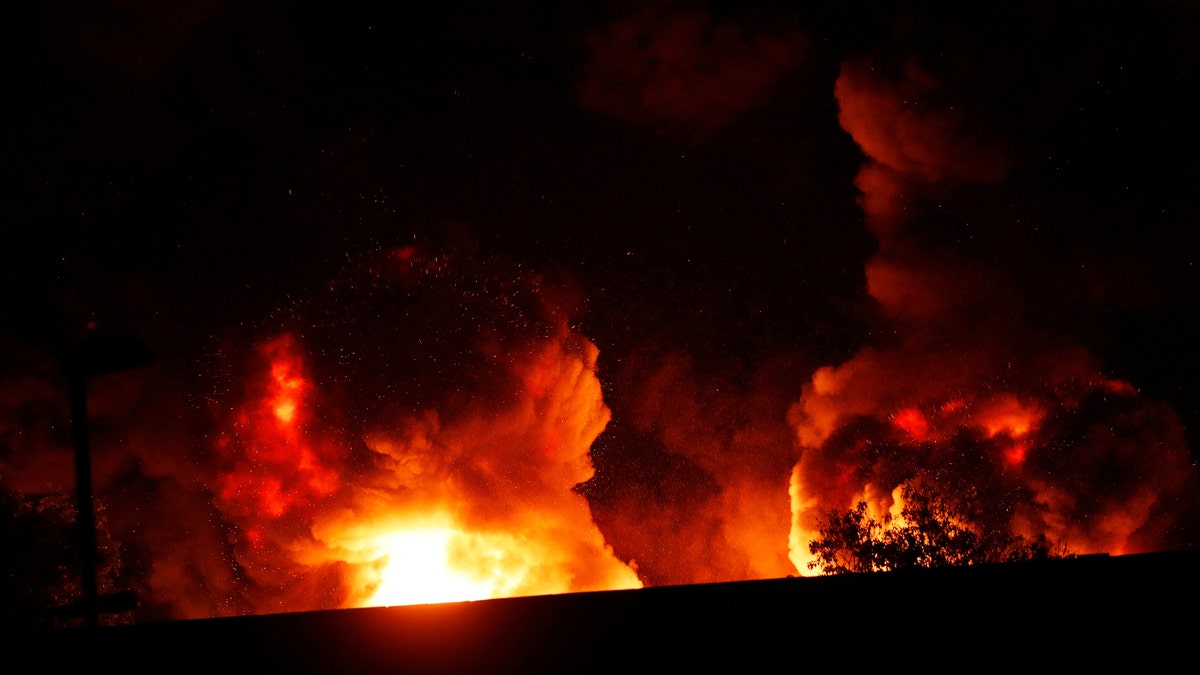
File photo: Smoke billows from a fire at a warehouse in Tottenham, north London, Britain, September 18, 2017. (REUTERS/Eddie Keogh)
A mass extinction which wipes out humanity will be underway by the year 2100, scientists have claimed.
By the end of the century, it’s feared that so much carbon will have been added to the oceans that the planet will have passed a “threshold of catatastrophe” which leads to the destruction of our species.
In the past 540 million years the planet has endured five such wipeouts – including the extinction of the dinosaurs.
The worst took place 252 million years ago and is known as the Great Dying.
This disaster killed off more than 95 per cent of marine life when the seas suddenly became more acidic.
Now geophysicist Professor Daniel Rothman says we are seeing a disturbing parallel today – this time because of man-made global warming.
He came up with a simple mathematic formula which predict that the oceans will soon hold so much carbon that a mass extinction is inevitable.
It showed the critical extra amount required is about 310 gigatons – which is the best case scenario projected by the Intergovernmental Panel on Climate Change (IPCC).
And it's well below the worst of more than 500 gigatons - which would far exceed the line.
In all scenarios, the study found by the end of the century the carbon cycle will either be close to - or well beyond - the threshold for catastrophe.
Although mass extinction won't soon follow at the turn of the century the world may have tipped into "unknown territory".
Professor Rothman, of the Massachusetts Institute of Technology, says it would take some time - about 10,000 years - for such ecological disasters to play out.
He said: "This is not saying disaster occurs the next day.
"It's saying - if left unchecked - the carbon cycle would move into a realm which would be no longer stable and would behave in a way that would be difficult to predict.
"In the past this type of behaviour is associated with mass extinction."
In the modern era CO2 emissions have risen steadily since the 19th century but deciphering whether this could lead to mass extinction has been challenging.
Humans have emitted 1,540 billion tonnes of CO2 since the industrial revolution - equivalent to burning enough coal to form a square tower 72 feet wide stretching 240,000 miles from Earth to the Moon.
Half of these have remained in the atmosphere causing a rise in levels at least 10 times faster than any known natural increase during Earth's long history.
Most of the other half has dissolved into the ocean - causing acidification.
Will this lead to the destruction of humanity?
Your grandchildren will probably find out, unless something changes now.
This story originally appeared in The Sun.








































